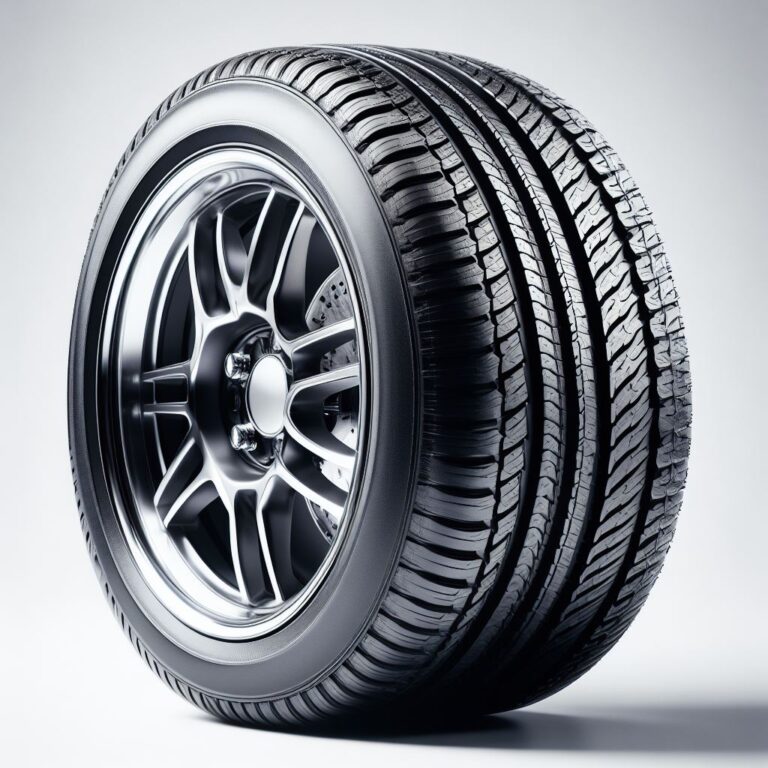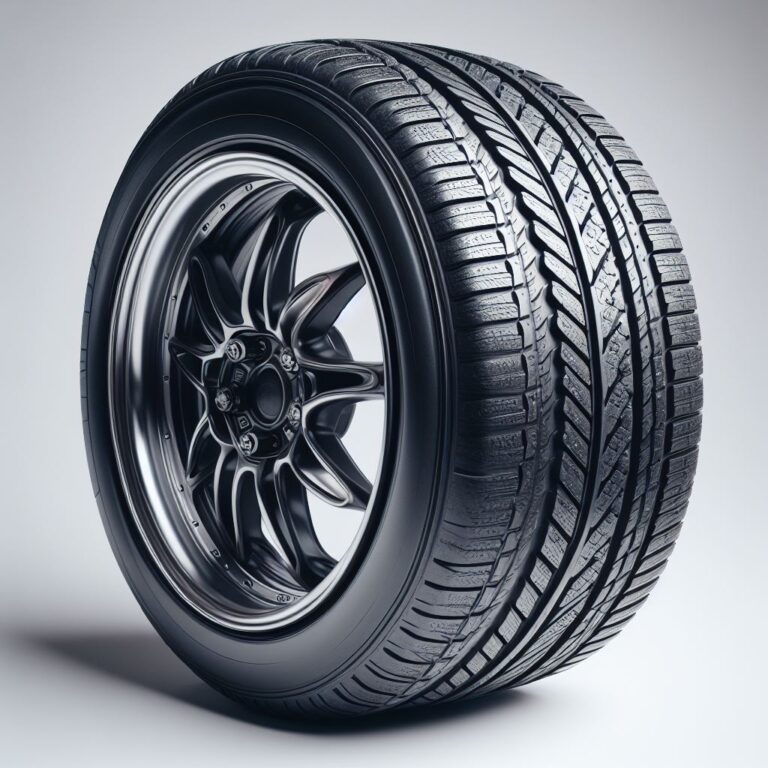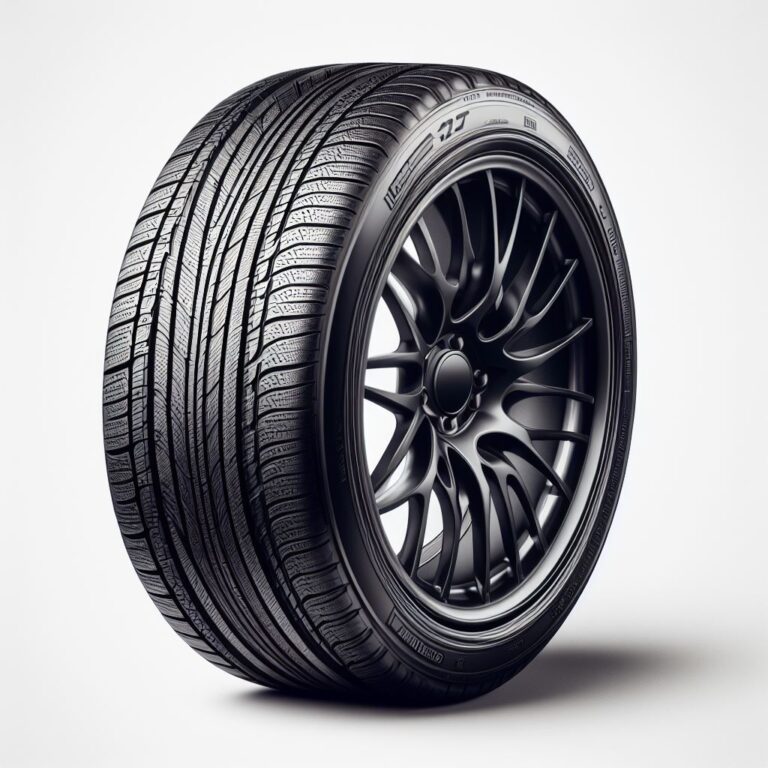How To Choose Nexen N’fera SU1
- How To Choose Arctic Claw WXI - January 20, 2024
- How To Choose BFGoodrich Advantage Control All Season - January 20, 2024
- How To Choose BFGoodrich Winter T/A KSI - January 20, 2024

Tire Size
The size of your tires is an important factor when it comes to vehicle performance and safety. Choosing the right tire size can greatly affect your overall driving experience. With the right tire size, you can ensure proper alignment, improved handling, and optimal fuel efficiency. Whether you have a small compact car or a large SUV, it’s essential to refer to your vehicle manufacturer’s specifications to determine the correct tire size. By following these guidelines, you can select tires that are compatible with your vehicle’s weight, load capacity, and suspension system, ensuring a smooth and comfortable ride.
In addition to vehicle compatibility, tire size also plays a role in tire performance. Different tire sizes have different attributes that can impact your driving experience. For example, larger tires generally offer better traction and stability, especially in adverse weather conditions. On the other hand, smaller tires may provide better maneuverability and fuel efficiency, making them ideal for city driving. It’s important to consider your personal driving needs and preferences when choosing the right tire size for your vehicle. Taking into account factors such as road conditions, driving style, and weather conditions can help you make an informed decision and enhance your overall driving experience.
Tread Pattern
Paragraph 1:
When choosing tires, one important consideration is the tread pattern. The tread pattern refers to the design and arrangement of the grooves and ridges on the surface of the tire. This pattern plays a significant role in determining the tire’s performance in different driving conditions. Whether you’re driving on wet roads, snowy terrains, or dry pavements, the tread pattern can greatly impact your vehicle’s traction and handling. It helps to displace water, improving grip and reducing the risk of hydroplaning. Additionally, a well-designed tread pattern can enhance stability, reduce road noise, and promote even wear for extended tire longevity. Therefore, selecting the appropriate tread pattern based on your specific needs and driving conditions is crucial for ensuring a safe and comfortable ride.
Paragraph 2:
There are several types of tread patterns available in the market, each designed to cater to specific weather conditions and road surface requirements. For instance, all-season tires generally feature symmetrical or asymmetrical tread patterns that provide a balanced performance on dry, wet, and light snowy conditions. On the other hand, winter or snow tires have deeper and more aggressive tread patterns with sipes and grooves to facilitate better traction and grip on snow and ice-covered roads. For off-road enthusiasts, all-terrain tires come with a combination of larger tread blocks and wider grooves to tackle a variety of terrains, including dirt, sand, rocks, and mud. Ultimately, understanding the different tread pattern options and their corresponding benefits will help you make an informed decision when choosing the right set of tires for your vehicle.
Tire Performance
Tire performance is a crucial consideration when choosing the right tires for your vehicle. The performance of your tires can greatly impact your driving experience and your safety on the road.
One important aspect of tire performance is traction. Traction refers to the tire’s ability to grip the road surface, which is essential for maintaining control and stability while driving. High-traction tires are particularly beneficial in wet or snowy conditions, as they can prevent skidding and ensure better handling. On the other hand, low-traction tires may not provide sufficient grip, resulting in poor performance and potential accidents.
Another factor to consider is the tire’s responsiveness. Responsive tires offer better steering control and handling, allowing for quick and precise movements on the road. A tire with poor responsiveness may make the vehicle feel sluggish or unresponsive, compromising your ability to maneuver effectively. Therefore, when evaluating tire performance, it’s essential to consider how well the tires respond to your driving inputs.
In summary, tire performance plays a crucial role in your overall driving experience and safety. Factors such as traction and responsiveness should be carefully evaluated when choosing the right tires for your vehicle.
Weather Conditions
When it comes to choosing the right tires for your vehicle, it is essential to consider the weather conditions you will be driving in. This is because different weather conditions require different tire characteristics to ensure optimal performance and safety on the road. In areas where the climate is predominantly warm and dry, summer tires are the ideal choice. These tires are designed with a tread pattern that provides excellent traction on dry roads, allowing for better handling and control. However, if you frequently drive in areas with heavy rain or wet roads, it is important to opt for tires with deep, wide grooves that can effectively channel water away from the tread. These are known as all-season or wet weather tires and are designed to provide enhanced grip and stability on wet surfaces. Considering the weather conditions you typically encounter will help you choose the right tires that can handle the specific challenges of your environment.
Driving Style
Driving Style plays a significant role in determining the type of tires that are best suited for your vehicle. Different driving styles require different tire characteristics to ensure optimal performance and safety on the road. Whether you have a more aggressive driving style, frequently taking sharp turns and accelerating quickly, or you have a more relaxed and cautious approach, the right tires can enhance your driving experience.
For those with an aggressive driving style, high-performance tires can provide the necessary grip, handling, and responsiveness needed for sharp cornering and quick acceleration. These tires are designed with a softer rubber compound, allowing them to provide excellent traction even at high speeds. On the other hand, drivers with a more laid-back style may prefer touring tires that offer a comfortable and quiet ride, ideal for long highway drives or city commutes. These tires prioritize stability and durability, providing a smooth and relaxed driving experience.
Tire Longevity
Tire longevity is an essential factor to consider when purchasing new tires. The lifespan of a tire depends on various factors such as the type of tire, driving conditions, and maintenance. It is important to choose a tire that is known for its durability and longevity to ensure greater mileage and longevity.
Regular maintenance and proper tire care also play a significant role in increasing tire longevity. Maintaining proper tire inflation, routine tire rotations, and regular inspections can help extend the lifespan of your tires. Additionally, practicing safe driving habits such as avoiding sudden stops and starts, maintaining appropriate speed limits, and avoiding rough terrains can also contribute to the longevity of your tires.
Overall, investing in tires with a reputation for longevity and practicing proper maintenance can save you money in the long run. By choosing tires that are designed to last, and taking the necessary steps to care for them, you can ensure that your tires provide optimal performance and longevity.
Price Range
When considering tire options, it’s important to factor in the price range. Prices for tires can vary greatly depending on the brand, size, and specific features. Generally, budget-friendly tires are available in the lower price range, while high-performance or specialty tires can be found in the higher price range. It’s essential to strike a balance between price and quality, as cheaper tires may compromise on durability and performance, while expensive ones might exceed your needs and budget. By comparing different tire brands and models within your desired price range, you can find the best value for your money while ensuring good overall performance and longevity.
Keep in mind that tire prices can also fluctuate based on factors such as seasonal sales, promotional offers, and discounts. It’s worth exploring various retailers and online platforms to find the best deals. Additionally, consider purchasing tires from authorized dealers or reputable sources to ensure product authenticity and access to warranty and customer support services. Remember, the goal is to find a price range that suits your budget while still maintaining the necessary safety and performance standards for your specific driving needs.
Customer Reviews
Customer reviews play a crucial role in helping potential buyers make informed decisions about tire purchases. These reviews provide valuable insights into the experiences of other users, allowing consumers to gauge the performance, quality, and value of the product. Whether it’s a review highlighting exceptional tread wear, superior grip in wet conditions, or overall customer satisfaction, these testimonials can offer a firsthand account of the tire’s performance in real-world scenarios. While it’s important to consider a variety of reviews, it is worth noting that individual preferences, driving styles, and expectations may differ, so it is advisable to look for patterns and consensus among multiple reviews.
When reading customer reviews, it is important to keep in mind that opinions can be subjective and may vary based on personal experiences. Some users may have unrealistic expectations or specific requirements that may differ from your own needs. It is also essential to consider the credibility of the source and look for reviews that provide detailed information and specific examples. Analyzing customer reviews can provide valuable information about the performance, durability, and overall satisfaction associated with a particular tire model. However, it is recommended to consider other factors such as professional reviews and expert opinions to arrive at a well-rounded assessment before making a final decision.
Warranty Information
Warranty Information:
Many tire manufacturers offer warranties to provide peace of mind to customers. These warranties typically cover defects in workmanship and materials, ensuring that customers receive a replacement or pro-rated reimbursement if an issue arises within a certain timeframe. It is important to note that warranties may vary between different tire brands and models, so it is essential to carefully review the specific terms and conditions before making a purchase. While some warranties may last for several years, others may have shorter durations. Additionally, it is crucial to keep in mind that warranties do not typically cover damage caused by normal wear and tear, improper tire maintenance, or road hazards. Therefore, it is advisable to exercise caution and adhere to proper tire care and maintenance practices to maximize the lifespan of your tires while ensuring compliance with the warranty requirements.
When considering warranty information, it is also worth checking if any additional guarantees or road hazard protection plans are available. These extra options can provide added coverage for issues such as flat tire repairs or tire replacements due to damage from nails, potholes, or other road hazards. While they may come at an additional cost, they can offer enhanced peace of mind and potentially save you money in the long run. As with any purchase, it is important to carefully read and understand the details and limitations of these additional coverage options to make an informed decision.
Availability
With the increase in online shopping and accessibility of specialized tire retailers, finding the right tires for your vehicle has become easier than ever before. Whether you are looking for specific tire sizes or tread patterns, a wide range of options are readily available online and in-store. You no longer have to rely solely on local tire shops, as you can compare prices, read customer reviews, and even order tires with just a few clicks. However, it is essential to keep in mind that availability may vary depending on your location and the demand for certain tire models.
In recent years, tire manufacturers have made significant efforts to increase their distribution channels, ensuring their products are widely available to consumers. Major tire brands have partnered with reputable online retailers, making it convenient to purchase tires even if you don’t have a local tire store nearby. Additionally, many automotive retailers now offer tire installation services, allowing you to have your tires shipped directly to their facility for hassle-free installation. However, it is crucial to check for tire availability before making any purchase and to consider potential shipping delays, especially during peak seasons or adverse weather conditions.
What factors should I consider when choosing a tire size?
When choosing a tire size, you should consider the specifications recommended by your vehicle manufacturer, including the width, aspect ratio, and wheel diameter.
How does the tread pattern affect tire performance?
The tread pattern plays a crucial role in tire performance. It affects traction, handling, and noise. Different tread patterns are designed for specific road conditions, such as all-season, summer, or winter tires.
How does tire performance vary in different weather conditions?
Tire performance can vary significantly in different weather conditions. For example, winter tires have specialized tread patterns and rubber compounds to provide better traction and handling in icy and snowy conditions.
How does my driving style impact tire performance?
Your driving style can impact tire performance. Aggressive driving, frequent hard braking, and fast acceleration can lead to faster tire wear and reduced performance.
What factors affect tire longevity?
Several factors can affect tire longevity, including tire maintenance, driving conditions, driving style, inflation pressure, and tire rotation schedule.
What price range should I expect when purchasing tires?
The price range for tires can vary depending on various factors, such as brand, tire size, tread pattern, and performance characteristics. It is advisable to research and compare prices from different retailers.
Should I consider customer reviews when selecting tires?
Yes, customer reviews can provide valuable insights into the performance, durability, and overall satisfaction of a particular tire model. They can help you make an informed decision.
What information should I look for in tire warranties?
When considering tire warranties, it is essential to look for coverage duration, mileage limitations, conditions for warranty validity, and any specific terms related to tire damage or defects.
How can I check the availability of tires?
You can check the availability of tires by contacting local tire shops or online retailers. They can provide information on stock availability and assist you with making a purchase.






